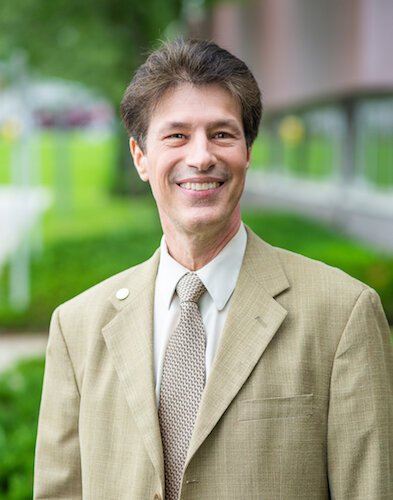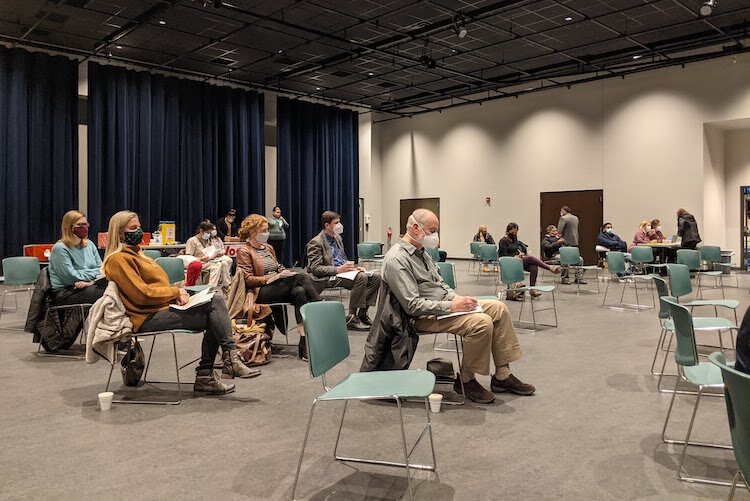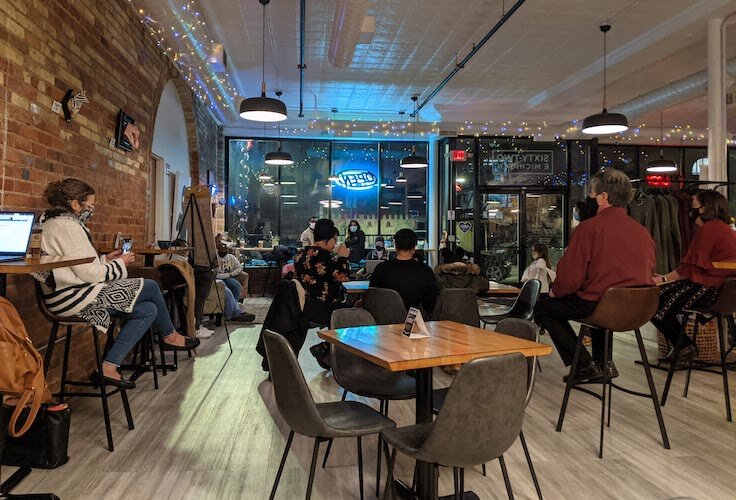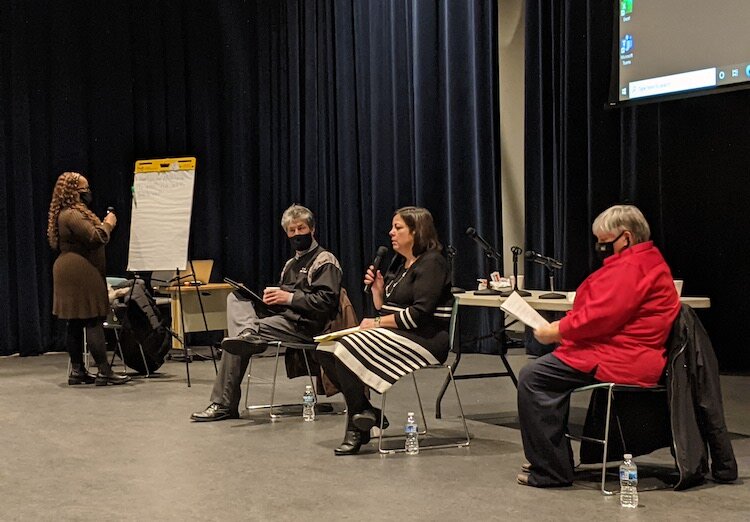Community organizations spending down ARPA funds in Battle Creek
At a series of Town Hall events that started in the Fall of 2021, the city of Battle Creek collected ideas on the best ways to spend ARPA funds so that they would have a positive impact on the city.
Getting your Trinity Audio player ready...
Editor’s note: This story is part of Southwest Michigan Second Wave’s On the Ground Battle Creek series.Community organizations that received a share of $8 million in ARPA (American Rescue Plan Act) funds in March are in the process of spending those allocations, says Ted Dearing, Assistant City Manager for the City of Battle Creek.
The city was the recipient of a total of $30.5 million in ARPA funding, half of which was received in 2021, with the remainder available this year, according to the city’s website.

The funds were focused on the projects of nonprofit organizations that were providing critical services to those impacted by the pandemic, Dearing says.
A total of 10 Town Halls took place beginning in Fall 2021, and in March of this year, City Commissioners finalized a list of those projects that had been selected to receive funding from the $8 million that had been designated specifically for community-based projects.
“I get the impression, that our approach was somewhat unique because of the fact that we wanted to set funding aside for public projects,” Dearing says.
Pastor Monique French, who leads Washington Heights United Methodist Church, says she is grateful for the $360,000 her church was given. It is being used to fund the Recover Our Neighborhood Project. The ARPA funds Washington Heights UMC received have been used for beautification projects that include the cleanup of debris and the planting of flowers and shrubs.
French was elected yesterday as a Calhoun County Commissioner representing District 2.
“Our neighborhood has been impacted tremendously because of COVID,” French says. “It was a thriving community and when you look around it has been impacted so much because of COVID. We wanted to turn things around and help people. There are a lot of houses that were once there that are no longer there. There’s been a decline in the neighborhood and we want to eliminate some of the blight that was in the neighborhood. We know that beautiful communities bring in new attractions and bring a sense of hope.”
French says the actual estimated cost of the Recover Our Neighborhood Project is $5 million and that she hopes to raise those funds in order to do infill housing work that will provide opportunities for people to have adequate homes.

French says, “We’ve gotten some great response from people who say they’re so appreciative of what we’re doing. We know that there were needs in the community and we wanted to fill those needs.”
The funding process unfolds
City Commissioners used a rubric process created by city staff at the Commissioners’ direction because they wanted the best reviewing tool possible, according to City Manager Rebecca Fleury. She says city staff incorporated parts of a process used in Kalamazoo and other tools that they had familiarity with to create the local rubric. (A rubric is a guide listing specific criteria for grading or scoring academic papers, tests, or projects.)
Each project’s alignment with the city’s Priority-Based Budgeting results and guidelines and the urgency and complexity of the projects were among areas that were taken into consideration, Dearing says.

Funds awarded to community groups include roughly $1.24 million to New Level Sports Ministries in support of its Youth Village, $1 million to the Latinx group Voces for permanent building space, $547,071 to Reintegration to Support and Empower (R.I.S.E) to support food distributions in the Washington Heights and Post/Franklin neighborhoods, $364,000 to SHARE Center for building upgrades and nearly $350,000 to the Burma Center for a new HVAC system.
“There was a little bit of everything in the mix and most nonprofits that received funding are sticking to their core competencies,” Dearing says.
The Arts and Culture Collective of Battle Creek was founded in 2022 to support artists and creators by nurturing a thriving creative economy in the city of Battle Creek, says Vania Word, Executive Director of the Collective, which received $347,071.
“The Collective seeks to drive community economic development that centers historically underserved and underrepresented artists, creators, and entrepreneurs, including BIPOC, queer, disabled, and/or low-income community members,” Word says. “The Collective seeks to bridge the gap between the business and creator community to support the city’s long-term community economic development goals with equity as a central value.”
The Collective, like the other 19 ARPA fund recipients entered into an agreement with the city and submitted budgets for their projects.
“Our beneficiary agreement allows recipients to draw down funds as they incur expenses relative to the project,” Dearing says. “If you have a $600,000 budget and said, ‘We’re going to spend money on staffing or programming.’ You then can draw down to pay the bills. The draw process allows each project to progress while drawing down funds.”
Laura Otte, a Battle Creek resident and independent contractor, was hired as a consultant to help the organizations get through the contract process and to help them monitor the draw-down process to completion of their project, Dearing says.
The draw-down requests track where the dollars are spent comparing them to the original budgets submitted and the original project descriptions to make sure they are doing the work as proposed. Otte reconciles all of this and Dearing says he reviews and authorizes the release of the ARPA funds.
Otte says, “It’s a privilege to work with these 20 organizations to help determine how to best approach and account for their ARPA Community Project expenses. Over the years I’ve worked in the nonprofit sector, many nonprofit leaders have expressed that they have avoided federal funding because it can be too cumbersome to apply for and difficult to manage when capacity is already strained. I’m proud of the community, organizations, City of Battle Creek staff, and Commissioners for choosing to work in partnership to find ways to make the best of this unique opportunity and help make these funds available. Ultimately, we’ll all benefit from these projects as a result of the positive impact they have on the people and organizations in our community.”
Although there were challenges, including the fact that there were more requests than funds available, Dearing says connecting with the public through the town hall sessions to find out the best way to spend ARPA dollars was a valuable learning process that created ways for the city to work with local nonprofits.
“I think in the end,” he says, “everyone recognizes this as a once-in-a-lifetime opportunity to provide important services that will help a lot of people who were negatively impacted by the pandemic.”















